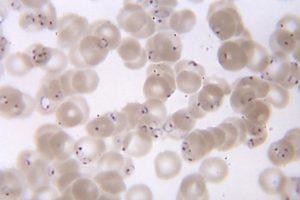The development of an effective malaria vaccine has long been investigated with hardly any success. There were approximately 438 000 deaths from malaria infection in 2015; predominantly in children under the age of 5 and therefore, a vaccine is urgently required to prevent infection. In this study, researchers tested the safety and efficacy of a malaria vaccine candidate. They found that their vaccine was safe and able to protect vaccinnees from malaria infection.
The vaccine tested is known at the Plasmodium falciparum sporozite (PfSPZ) vaccine. PfSPZs have been shown to induce sterile immunity in human studies where participants are infected with the parasite in a controlled setting. This vaccine uses attenuated sporozoites which trigger an immune response with the hope of conferring protection against malaria infection.
The researchers, led by Patrick Duffy, investigated how safe this vaccine was and how immunogenic and efficacious it was in a cohort of individuals from the malaria endemic country of Mali in West Africa. The study was designed to be double-blind, randomised and placebo-controlled and was a Phase I trial. They enrolled healthy participants between the ages of 18-35 , both men and non-pregnant women.
Altogether, 93 participants were enrolled in the study with 47 participants getting the placebo. There was no difference in adverse events between the two groups and only minor side effects were recorded such as headaches and fatigue.
93% of the placebo group developed malaria infection while 66% of participants who were given the vaccine developed malaria. The statistics show that the hazard ratio for efficacy was 0.517 by analyzing time-to-infection.
Altogether, this study showed that the PfSPZ vaccine is safe without any severe adverse effects. The vaccine was able to protect from malaria infection acquisition in the Mali cohort although the effect is not big enough to continue with this current regimen. The next steps for these researchers is to further optimize this vaccine and immunization regime to increase its protective efficacy.












